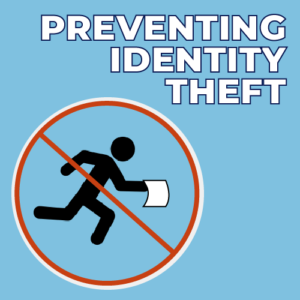
In 2021, roughly 23.9 million people, or 9% of U.S. residents age 16+, reported that they had been victims of identity theft during the prior 12 months in a 2023 U.S. Bureau of Justice Statistics report.
Identity theft occurs when someone unlawfully uses your personal information to commit fraud. In today’s digital world, steps must be taken to safeguard your information, data, and identity to avoid becoming a victim of such schemes.
Use this information to help to prevent it:
- Do not give out any personal information to unfamiliar individuals. Technology Services will never ask for your password, phone number or Social Security number. If someone you don’t know requests information that you may deem unnecessary, you should decline to provide it.
- Beware of job and prize scams using spoofed email addresses with offers that seem too good to be true. These scams seek sensitive information such as your password, Social Security Number, and banking details.
- Set your social media accounts to private or “friends only” to avoid having your identity stolen on social media sites. Scammers can use your publicly visible data to create fake profiles which impersonate you to connect with targets.
- Your NetID password should be unique and not a variation of one used for other accounts. You can use the NetID Center to update your University of Illinois NetID password to protect your account from unauthorized access.
The following links provide more information and resources about identity theft from the University of Illinois:
https://www.ssn.uillinois.edu/identity_theft_information/
https://cybersecurity.illinois.edu/manage-and-protect-my-identity/
If you find yourself a victim of identity theft, the Federal Trade Commission provides information and resources:
The Department of Justice also provides some helpful information if you suspect you’re a victim of identity theft: